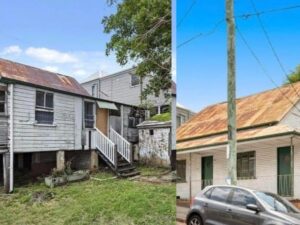
In a move that has sent ripples through Sydney’s real estate community, Fair Trading has confirmed an ongoing investigation into Josh Tesolin and the Ray White Quakers Hill office. The probe follows a proactive compliance blitz targeting underquoting and complaints from affected parties. Although Fair Trading has refrained from further comment due to the investigation’s ongoing nature, the controversy surrounding Tesolin’s incentivized sales commission scheme has been laid bare by his own clients.
Clients have expressed concerns about Tesolin’s commission structure, which they claim was introduced unexpectedly in the days or even the night before auctions. This commission, pitched as a means to attract new buyers, deviates from the norm. According to Fair Trading, while incentivized commissions are permissible if agreed upon at the campaign’s start, they are not standard practice. Typically, these involve a bonus commission if a sale exceeds expectations, but they can also mean reduced commissions for lower results.
Unpacking the Incentive Scheme
Industry experts have weighed in on the controversy. Matt Lahood, chief executive of real estate at The Agency, notes that such schemes are usually client-driven. However, Tesolin’s approach appears to incentivize other agents to introduce last-minute buyers, potentially inflating auction day prices. In messages reviewed by this publication, Tesolin’s extra commission—often 20% on top of the standard 2.75%—was proposed to sellers only after their reserve prices were set.
One notable instance involved a record-setting sale in Acacia Gardens, where the commission soared from $48,950 to $75,300 due to this bonus. Similarly, a Quakers Hill property saw its commission nearly double to $82,625 after selling for 20% over the reserve. Such practices have raised ethical concerns within the industry.
“That is certainly unethical,” said Tim McKibbin, CEO of the Real Estate Institute of NSW. “As for whether it’s illegal, I would say that there isn’t a good smell about it.”
Impact on Sellers
The impact on sellers has been significant. Sue Roughley, whose home was sold under Tesolin’s scheme, recounted how the commission was unexpectedly introduced days before the auction. Although the sale was successful, Roughley later discovered the buyers had been interested long before the auction, contradicting Tesolin’s claims of last-minute interest. Ultimately, her extra commission was returned, but not without a struggle.
Another couple, Jamie and Susan Lynne, experienced a similar scenario. Despite a successful auction, they later realized the buyer had inspected their home prior to the commission proposal. Their commission jumped from $45,000 to over $65,000, leaving them disillusioned.
Legal and Ethical Concerns
The controversy extends beyond commissions. Tesolin’s involvement in property purchases has also come under scrutiny. A property in Bungarribee was sold under auction conditions to Tesolin’s wife, raising questions about conflict of interest. Although Ray White Group’s internal investigation found compliance with disclosure requirements, the situation has fueled further debate.
Omid Rahmani, a law student and son of a buyer at one of Tesolin’s auctions, highlighted the vulnerability of clients unfamiliar with the real estate process. This sentiment echoes across the community, where transparency and ethical conduct are paramount.
“People rely blindly and completely on the advice coming from the agent,” Rahmani observed.
Looking Ahead
As the investigation continues, Tesolin’s practices remain under the microscope. Ray White Group has implemented compliance improvements, including appointing an experienced licensee-in-charge. However, the controversy has not dampened Tesolin’s business, with his advertisements still prominent across local media.
The outcome of Fair Trading’s investigation will be closely watched, as it holds potential implications for industry standards and practices. For now, Tesolin maintains that his incentive commissions are agreed upon with vendors and are only charged with their consent. The real estate community awaits further developments, hoping for clarity and resolution in a case that has captivated Sydney’s property market.







